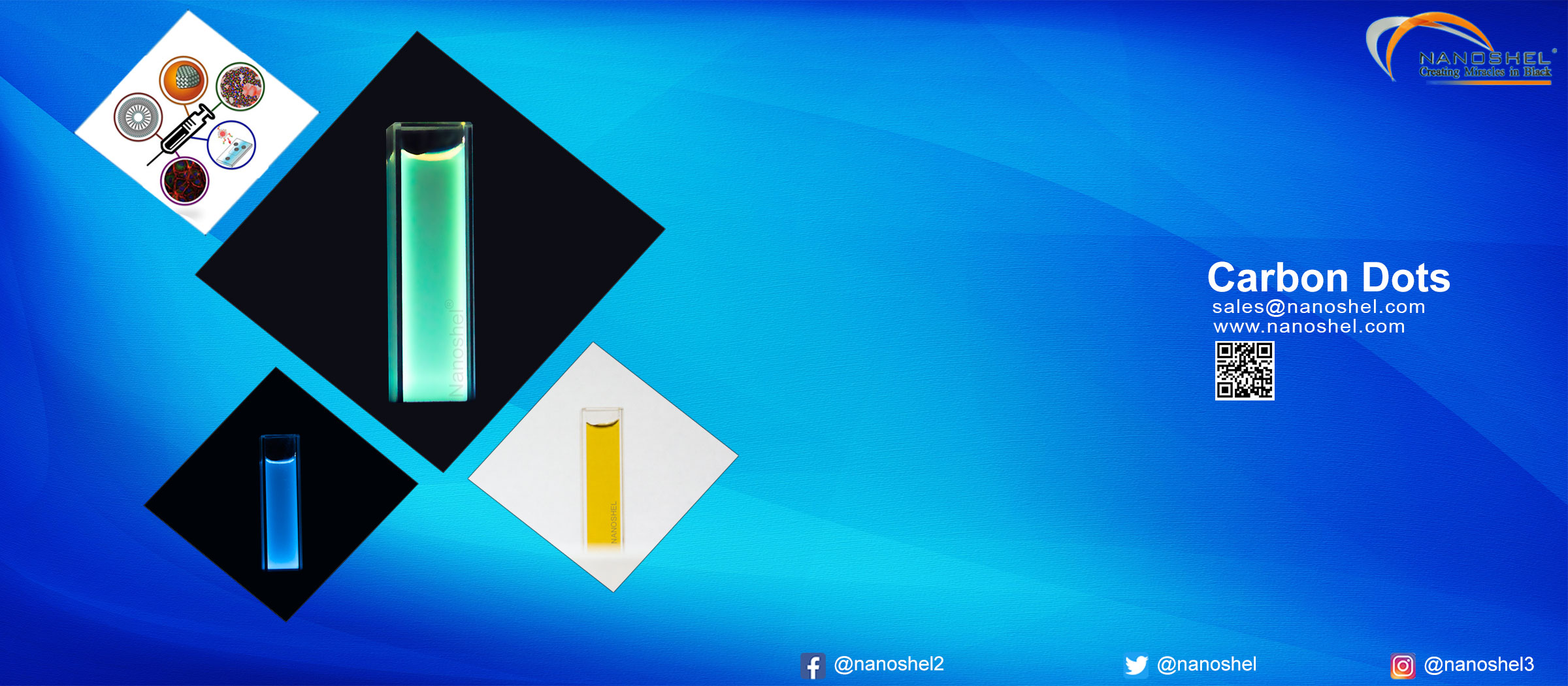Carboxyl Carbon Dots Blue
C-dots, Purity: 99.99%, Emission: 450-460nm
Carboxyl Carbon Dots Blue
Available Pack Size: 10ml, 25ml, 50ml, 100ml, 250ml, 500ml, 1Ltr & Bulk orders
Fluorescent Color - Bright Blue
Fluorescence Spectroscopy - Carboxyl C-dots
| Product | Carboxyl Carbon Dots Blue | |
| Stock No | NS6130-12-0001387 | |
| CAS | 7440-44-0 | Confirm |
| Purity | 99.99% | Confirm |
| Molecular Formula | C | Confirm |
| Molecular Weight | 12.01 g/mol | Confirm |
| Surface Modified | COOH | Confirm |
| Density | 1.0032 g/mL | Confirm |
| Emission Wavelength | 450-460nm | Confirm |
| Excitation Wavelength | 365nm | Confirm |
| Concentration | 0.0074mg/mL | Confirm |
| Solvent | Water | Confirm |
| Fluorescence Color | Bright Blue | Confirm |
| Storage Temperature | 2-8 °C | |
| Applications | Bioimaging and biomedicine delivery systems, solar cells, supercapacitors, catalysts etc. | |
| Quality Control | Each Lot of was tested successfully | |
| Main Inspect Verifier | Manager QC | |
Typical Chemical Analysis
| Assay | 99.99% |
| Other Metal | 100ppm |
Expert Reviews
Carboxyl Carbon Dots Blue

Contact Us
From us, you can easily purchase Silver Nano particles as a new generation of Antimicrobials (Ag, Purity: 99.9%, APS: 50–80 nm, Metal basis) at great prices. Place an online order and we will dispatch your order through DHL, FedEx, UPS. You can also request a quote by mailing us at sales@nanoshel.com. We invite you to contact us for further information about our company and our capabilities. At Nanoshel, we look forward to your suggestions and feedback.
Email Us:
sales@nanoshel.comcmg@nanoshel.com
🔆
Follow Us:
Direct Call Us:
USA – Sales/Research
+1 646 470 4911
+1 646 470 4911
UK – Sales/Research
+44 1782 454 144
+44 1782 454 144
Ireland – Sales/Research
+354 71 985 3714
+354 71 985 3714
India – Sales/Research
+91-9779550077
+91-9779238252
+91-9779550077
+91-9779238252
Note:
*Exchanges of materials/products are not permitted. Nanoshel does not offer refunds.
*US Dollar Cheques Not Accepted, Only Bank TT/Credit Cards Accepted
*Exchanges of materials/products are not permitted. Nanoshel does not offer refunds.
*US Dollar Cheques Not Accepted, Only Bank TT/Credit Cards Accepted
